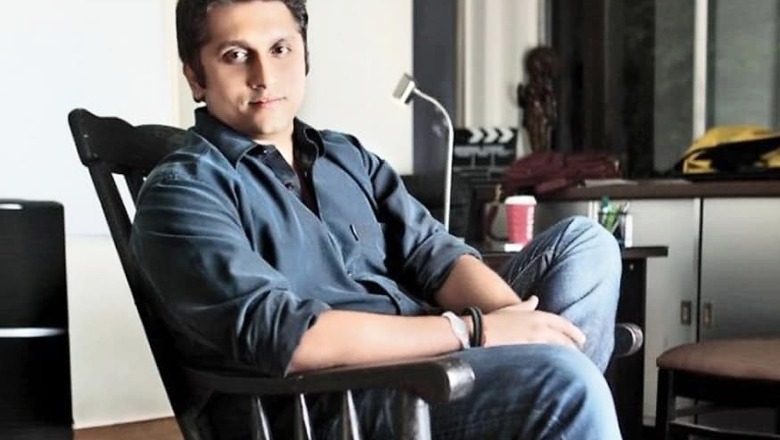
views
Mohit Suri says he is not interested in making violent films just "for the sake of violence.” The director, whose recent release Malang is a fictional story about a man, Advait (Aditya Roy Kapoor) who embarks on a killing spree one Christmas night, says there is “a reason” for violence in the movie.
In Malang, Suri shows off the explicit scenes of violence in a stylised manner, treating his viewers to gruesome graphics. But as a filmmaker, where does one draw one's own lines when it comes to peddling violence as entertainment?
Suri says, "I'm just making a film and I don't think it is a work of fiction like a book or a painting is. It should be entertaining, enjoyed and consumed. I'm not intellectually that superior to tell you how to live your life. Secondly, it's an adult film, so it essentially caters to an audience that has a right to choose to marry or choose their Prime Minister and make other similar serious decisions of their lives, and at the same time decide whether they want to take substance or be violent.
"Every cause has an action. I would have understood if it were catering to a younger audience where you could be influenced. But if you can choose the wrong person to lead your country, that is even more serious a decision than choosing to do some consumption that might be bad for your health."
The director, best known for helming hit Bollywood romantic musical drama Aashiqui 2, says even though he always wanted to make sure there was a context to the violence in his films, people always have a choice to not watch them.
"I have made Aashiqui 2 and Hamari Adhuri Kahani, where I have not gone into violent things. Every story has its own demand. This is a film which is a thriller and talks about killing people over one night, and hence I had to show the violence. As an adult, you have a choice to not see the film. As an adult, you also have the choice of watching it and not deciding to act upon it. And as an adult, if you watch it and get influenced by it and act upon it then you're responsible for the consequences," he says.
Suri further points out that the common public doesn't get bothered by an over-abundance of online rants analysing films on morality.
"I felt Baahubali: The Beginning was violent. In the climax, where Prabhas is holding the neck of a person and walking towards his father, that's quite violent. But just because it was under the garb of mythology... Also, if you read up our mythology, it's also pretty violent. I think it totally depends on how you look at things. I think only an elite section has politicised all these things. I don't think common public looks at films like that. They want to go and watch a film and enjoy themselves. They want to be entertained.
"Don't look at cinema out there to change people's lives. It's like saying, 'In Aashiqui, everyone would turn alcoholic after the film.' An alcoholic doesn't turn alcoholic because of the film, he is an alcoholic. I think we need to give the right balance to cinema where it is at the lead position, and let's not take things so seriously," he adds.
Malang also depicts the "highs" and euphoria associated with drug use. Talking about the same, Suri says, "The perspective on substance abuse is very personal with everybody. Earlier, we showed people resort to drugs only if they were depressed or there was a bad childhood. Today, the youth is living life from one high to another. There are products that make you feel good. And once you consume them, you want more and the bar is higher. Take for example, the smart phones, they are getting smarter and we're getting dumber, lazier. So, I think everything is more hybrid now."
He continues, "Kids are indulging in things like that to live life from one high to another. That was the main idea behind the movie: to talk about the mindset of how today's youth is living that way. But in the end, you have to conform to the age old thing in a sense that when the high goes down everyone wants to go home with the person they love. I'm not trying to make a comment on the youth culture. I'm just representing them. We all have done stuff like that in the past. We all have gone to rock shows, road trips and music festivals but in the end when the high goes down, you actually want to go home. And, those universal truths don't change."


















Comments
0 comment